by Terrie Lynn Bittner | Oct 22, 2012 | Mormon Beliefs: Christian Values
This weekend I attended the funeral of a friend. As I watched the proceedings, I couldn’t help but note that while there are many similarities between Mormon funerals and others, there are also differences. Those differences are significant because they illustrate the way Mormons view their beliefs.
The first thing a person who isn’t Mormon might notice when he arrived at a Mormon funeral is that most of the people aren’t dressed in black. Mormons see the funeral as a time of sadness for those who loved the person who died, but more in the way we’re sad when a friend or family member moves far away and we won’t be seeing them for a long time, not as a permanent end to life or love. We don’t wear black the day the day a friend or family member moves away.
Mormons believe that through Jesus Christ’s atonement, everyone will be resurrected and live forever. Most people will go on to live in Heaven. Only those who are truly evil or have denied the Savior after being shown for certain He lives would be denied Heaven, although not everyone will live with God. The Bible sets out specific requirements for that special privilege, but Mormons do not believe you have to have been Mormon in this life to go to Heaven or even to live with God, although you will have to accept the gospel once you’ve received a testimony of it. All levels of Heaven are wonderful places to spend eternity. (more…)
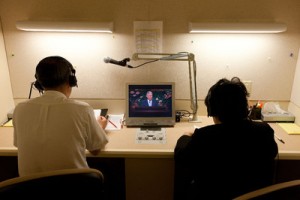
by janm | Oct 3, 2012 | About Mormons
When a group of new stake presidents from outside the United States attended the General Conference of The Church of Jesus Christ of Latter-day Saints in 1961, they were able to hear words directly from the prophet and other general authorities in their own language–Dutch, German, Samoan or Spanish—for the first time.
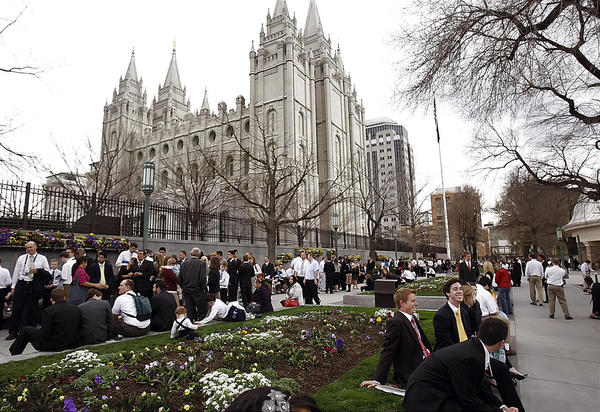 Now, fifty years later, a worldwide audience will hear inspired messages in their own language during the October General Conference. Thanks to technology and efforts of LDS Church employees in the Translation Division and a huge volunteer force, at least one session of the two-day event will be available in 93 languages to more than 98 percent of church members. In contrast, the United Nations interprets to dignitaries in six official languages.
Now, fifty years later, a worldwide audience will hear inspired messages in their own language during the October General Conference. Thanks to technology and efforts of LDS Church employees in the Translation Division and a huge volunteer force, at least one session of the two-day event will be available in 93 languages to more than 98 percent of church members. In contrast, the United Nations interprets to dignitaries in six official languages.
Even with a highly trained volunteer force and impeccable technology, interpreting sacred words becomes a matter of relying on the spirit of the Holy Ghost, according to Brad Lindsay, manager of Interpretation Services for the Church who was interviewed for a Newsroom article at lds.org. (more…)
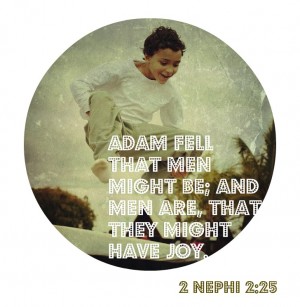
by Terrie Lynn Bittner | Sep 26, 2012 | Mormon Reflections
I didn’t grow up in any particular faith, but I was taught about God and Jesus Christ. Over time, I developed my own ideas of who God was. Because He is called the Father, I saw in God the qualities of my own father. I looked to a God who was intelligent, who encouraged me to be everything I could be, who was there for me, who wanted me to have the best of his life and more, and a father who was, therefore, loving.
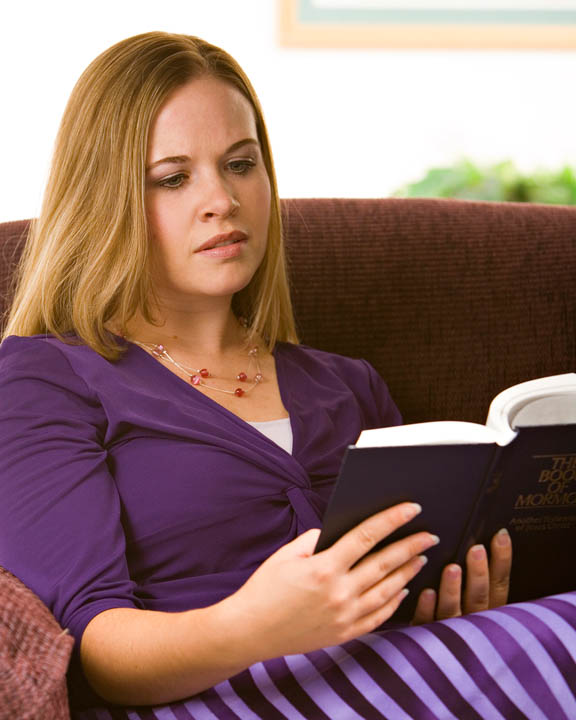 As I got older and began visiting churches, however, it seemed hard to find this God. The God presented to me just didn’t seem very loving or to have anyone’s best interest at heart. Why would a God who loves His children play favorites, letting some hear the gospel and be saved, while others have no opportunity to hear it and are doomed? Why would He condemn small children who died because their parents failed to baptize them? Why did He put people on Earth in such differing circumstances?
As I got older and began visiting churches, however, it seemed hard to find this God. The God presented to me just didn’t seem very loving or to have anyone’s best interest at heart. Why would a God who loves His children play favorites, letting some hear the gospel and be saved, while others have no opportunity to hear it and are doomed? Why would He condemn small children who died because their parents failed to baptize them? Why did He put people on Earth in such differing circumstances?
Mainstream Christianity didn’t seem to have an answer to those questions. The Mormons, when I met them, did. I listened. (more…)

by Keith L. Brown | Sep 18, 2012 | About Mormons
There is a lot of “buzz” going on about the Mormons as of late. Some people learn about Mormons from sources that aren’t reliable—aka not the source itself. I am here to give you some statistics and facts; and I am a Mormon, so you can consider what you learn here “from the source.” To begin, we are members of The Church of Jesus Christ of Latter-day Saints—we are commonly called Mormons because of our belief in the Book of Mormon. Now for some interesting facts:
Facts on How Mormons Worship
Mormons are Christians. Mormons believe the Bible and the Book of Mormon to be the word of God—both testifiers of Jesus Christ. The Book of Mormon actually mentions Jesus Christ 3,925 times, which is an average of every 1.7 verses. Other interesting facts about Mormons:
- 100% of sacramental services focus on Jesus Christ.
- 9 of 10 members pray weekly and over 80% pray daily.
- According to an independent study, Mormons are among the most knowledgeable of the Bible.
- The LDS Church is the 4th largest religious body in the U.S.
- A recent PEW study showed that 77% of Mormons attend church weekly, as opposed to the 39% U.S. average. (Mormon Newsroom)
What does the LDS Church offer its Mormon members?
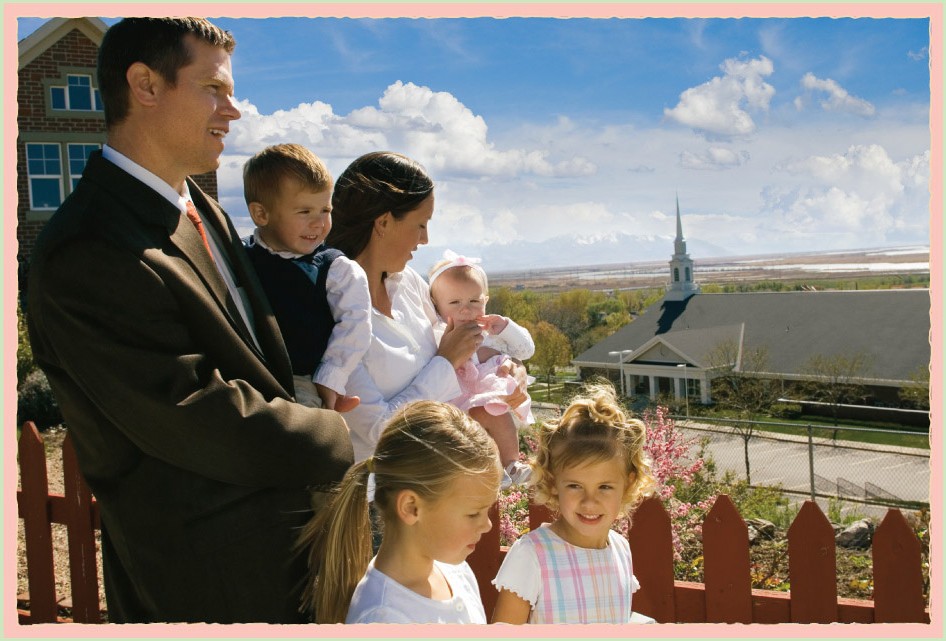 With a membership of 14,441,346 (end 2011) and total of 28,660 congregations, you can formally worship as a Mormon most anywhere in the world—in fact the Church is found in 185 different countries, nations and territories. You can also find more members outside of the United States than within. Some congregations are small, sometimes only a family or two; these congregations are called branches. Most congregations, however, range from three hundred to eight hundred members; these are called wards. (more…)
With a membership of 14,441,346 (end 2011) and total of 28,660 congregations, you can formally worship as a Mormon most anywhere in the world—in fact the Church is found in 185 different countries, nations and territories. You can also find more members outside of the United States than within. Some congregations are small, sometimes only a family or two; these congregations are called branches. Most congregations, however, range from three hundred to eight hundred members; these are called wards. (more…)
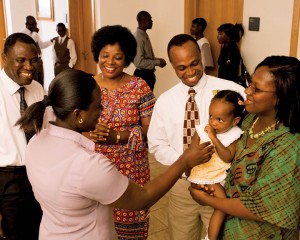
by Keith L. Brown | Sep 12, 2012 | Black Mormon
There are many people who know very little, if anything, about The Church of Jesus Christ of Latter-day Saints (commonly referred to as the Mormon Church), and quite a bit of what they do know about the LDS Church and its teachings and beliefs has come from critics of the Mormon religion. One of the main issues that critics of The Church of Jesus Christ tend to focus on is the relationship that exists between Blacks and Mormons, and whether or not the LDS Church is racist.
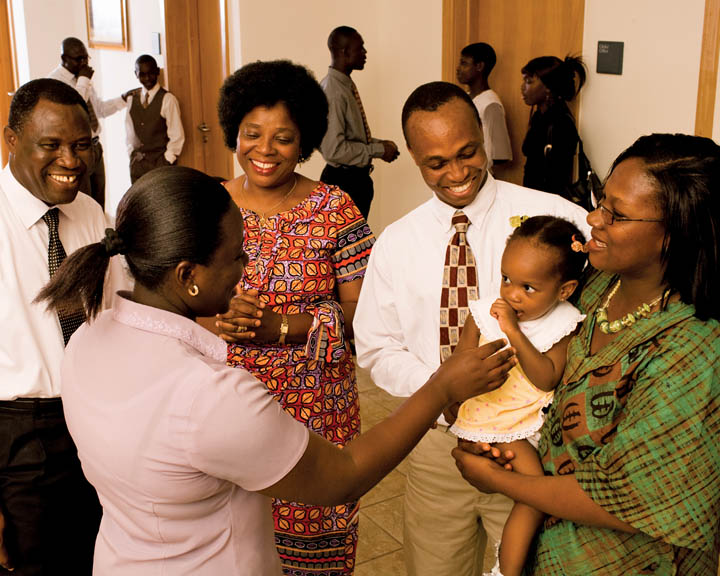 The fact that Latter-day Saints of African American descent were not permitted to be ordained to the Priesthood for a long period of time has triggered, and continues to trigger, uncertainty in the minds of some people, in particular, those of the Black race, who view this action as a sign of prejudice or racism on the part of the LDS Church. This one fact becomes even more complex for some to understand and accept as there has never been an official statement released by The Church of Jesus Christ of Latter-day Saints as to why those of African American descent were not permitted to be ordained to the Priesthood, which in turn also restricted them from participating in the sacred ordinances of the Holy Temple. (more…)
The fact that Latter-day Saints of African American descent were not permitted to be ordained to the Priesthood for a long period of time has triggered, and continues to trigger, uncertainty in the minds of some people, in particular, those of the Black race, who view this action as a sign of prejudice or racism on the part of the LDS Church. This one fact becomes even more complex for some to understand and accept as there has never been an official statement released by The Church of Jesus Christ of Latter-day Saints as to why those of African American descent were not permitted to be ordained to the Priesthood, which in turn also restricted them from participating in the sacred ordinances of the Holy Temple. (more…)


 Now, fifty years later, a worldwide audience will hear inspired messages in their own language during the October General Conference. Thanks to technology and efforts of LDS Church employees in the Translation Division and a huge volunteer force, at least one session of the two-day event will be available in 93 languages to more than 98 percent of church members. In contrast, the United Nations interprets to dignitaries in six official languages.
Now, fifty years later, a worldwide audience will hear inspired messages in their own language during the October General Conference. Thanks to technology and efforts of LDS Church employees in the Translation Division and a huge volunteer force, at least one session of the two-day event will be available in 93 languages to more than 98 percent of church members. In contrast, the United Nations interprets to dignitaries in six official languages.
 As I got older and began visiting churches, however, it seemed hard to find this God. The God presented to me just didn’t seem very loving or to have anyone’s best interest at heart. Why would a God who loves His children play favorites, letting some hear the gospel and be saved, while others have no opportunity to hear it and are doomed? Why would He condemn small children who died because their parents failed to baptize them? Why did He put people on Earth in such differing circumstances?
As I got older and began visiting churches, however, it seemed hard to find this God. The God presented to me just didn’t seem very loving or to have anyone’s best interest at heart. Why would a God who loves His children play favorites, letting some hear the gospel and be saved, while others have no opportunity to hear it and are doomed? Why would He condemn small children who died because their parents failed to baptize them? Why did He put people on Earth in such differing circumstances?
 With a
With a 
 The fact that
The fact that